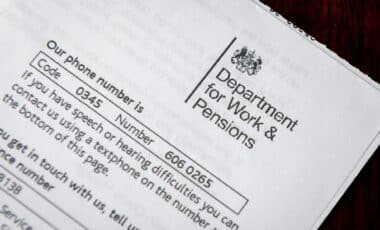The HM Revenue and Customs (HMRC) has announced a reduction in the late payment interest rate from 7.25% to 7%, offering a slight reprieve for the 1.1 million Britons who missed the 31 January deadline for filing their Self Assessment Tax Return.
This adjustment follows the Bank of England’s decision to lower its base rate from 4.75% to 4.5%, directly impacting HMRC’s interest calculations.
While the rate cut provides some financial relief, critics argue that the system remains disproportionate. Taxpayers who owe HMRC are charged significantly higher interest than those entitled to refunds, raising concerns about fairness in the tax system.
A small reprieve but significant penalties remain
The reduction in the late payment interest rate aligns with HMRC’s policy, which sets its rate at 2.5 percentage points above the Bank of England’s base rate.
This means that from 17 February, taxpayers with outstanding bills will see a slight reduction in the cost of their debt. However, the penalty system for late filing remains in place, and charges can escalate rapidly.
According to HMRC, the penalty structure is designed to encourage timely compliance. Taxpayers who miss the deadline face an immediate £100 fine, regardless of whether they owe tax or not. Additional charges include:
- £10 per day after three months (up to £900)
- 5% of the tax owed or £300 (whichever is greater) after six months
- An additional 5% or £300 after 12 months
Beyond these penalties, the 7% late payment interest rate continues to apply, accumulating daily on unpaid amounts. This can result in significant financial strain for those struggling to settle their tax liabilities.
Disparity in interest rates raises fairness concerns
Despite the recent reduction, critics argue that HMRC’s interest policy remains unbalanced. While taxpayers are charged 7% on overdue payments, HMRC only pays 3.5% interest on refunds, meaning taxpayers receive half the rate in return if HMRC owes them money.
This discrepancy has drawn criticism from tax professionals. According to the Chartered Institute of Taxation, the difference between the two rates creates an unfair system where taxpayers are penalised more harshly than HMRC itself.
HMRC, however, defends its approach, stating that its rates are in line with other tax authorities and are consistent with standard financial practices, given that similar rates are applied by banks for loans and deposits. The department maintains that the system is designed to encourage timely payment rather than act as a punitive measure.
For taxpayers who missed the deadline, paying outstanding amounts as soon as possible remains the best course of action to avoid further penalties and interest charges. Seeking professional financial advice can also help navigate the complexities of the UK’s tax system and mitigate unnecessary costs.









